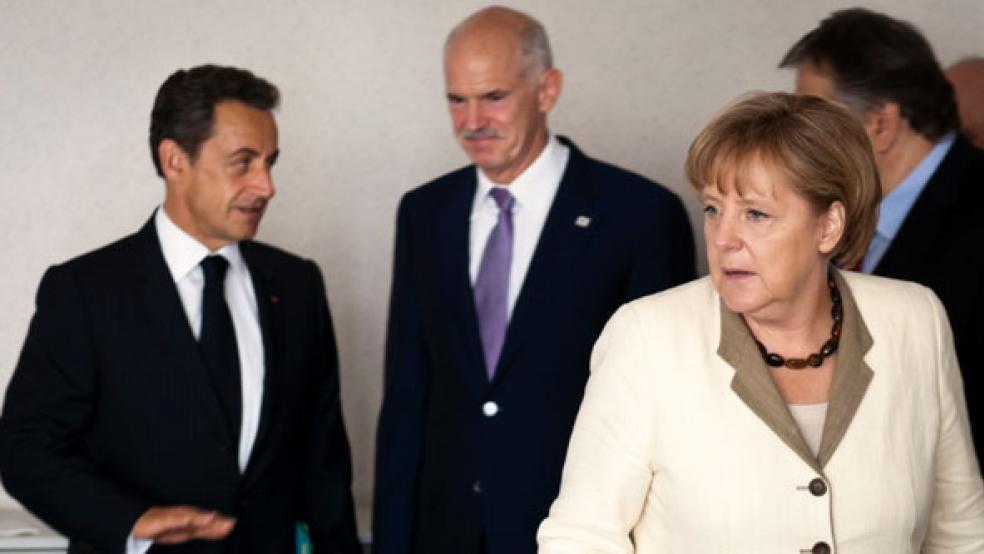BRUSSELS (AP) — Eurozone leaders on Thursday agreed a sweeping deal that will grant Greece a massive new bailout and make radical changes to the currency union's bailout fund, allowing it to act pre-emptively when crises build up.
The eurozone countries and the International Monetary Fund will give Greece a second bailout worth euro109 billion ($155 billion), on top of the euro110 billion already granted a year ago.
Banks and other private investors will contribute some euro37 billion ($53 billion) to the rescue package by either rolling over Greek debt, swapping it for new bonds with lower interest rates or selling the bonds back to Greece at a low price. The eurozone will provide some form of guarantees to the new Greek bonds rated at "selective default," so that Greek banks will be able to continue accessing liquidity support from the ECB.
In the case of bond rollovers or swaps, the new Greek bonds issued to the banks would have long maturities of up to 30 years and low rates, according to the Institute of International Finance, the group representing the private sector creditors. French President Nicolas Sarkozy estimated the rates would average 4.5 percent.
"For the first time since the beginning of this crisis, we can say that the politics annd the markets are coming together," said European Commission President Jose Manuel Barroso.
Leaders also agreed to provide the new eurozone rescue loans to Greece at a 3.5 percent interest rate and with an average maturity of at least 15 years. The maturities will be up to 30 years and have a grace period of 10 years.
The leaders also overhauled their bailout fund, allowing it to provide a "precautionary program," such as short-term credit lines.
On top of that, the fund will be able to recapitalize banks in countries that haven't been bailed out and it will be allowed to buy bonds on the secondary market, taking pressure off countries experiencing an investor sell-off.
Sarkozy said Portugal and Greece will also get lower interest rates on their bailout loans, but that there won't be any private sector involvement in their support programs.
"Private sector involvment will be limited to Greece, and Greece only," EU President Herman Van Rompuy said.
Copyright 2011 The Associated Press.




